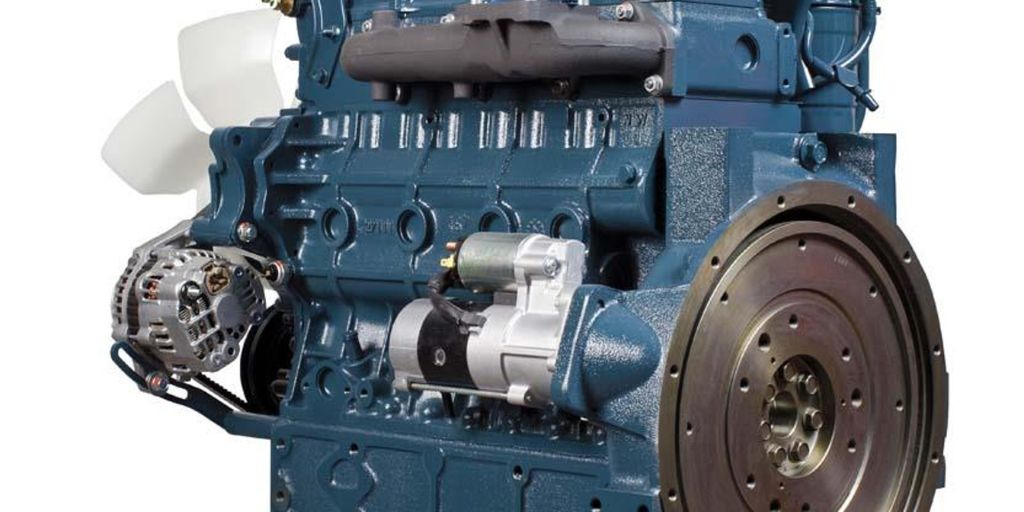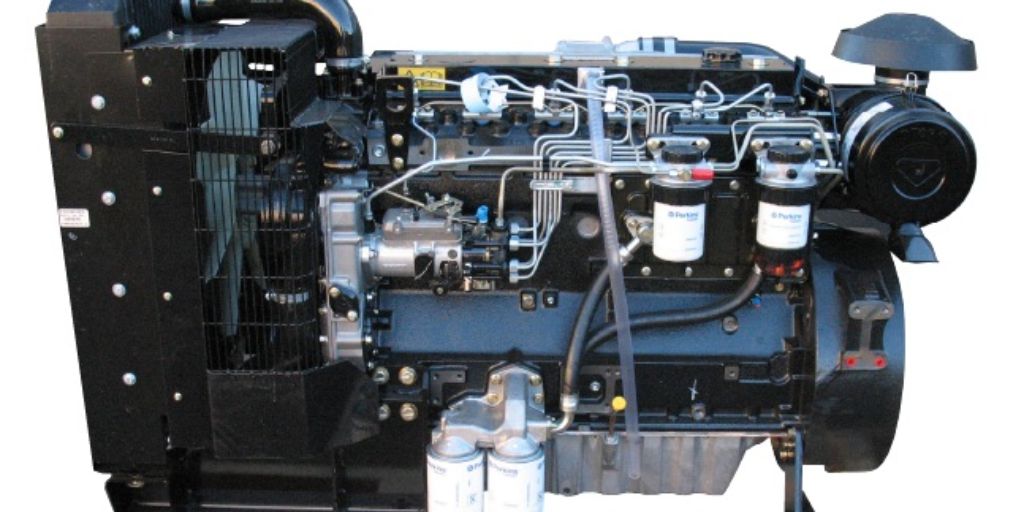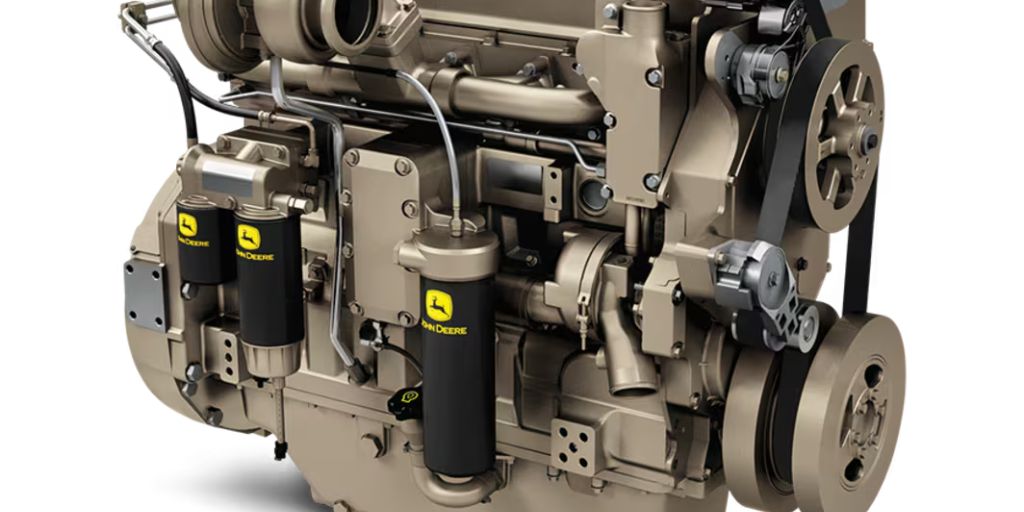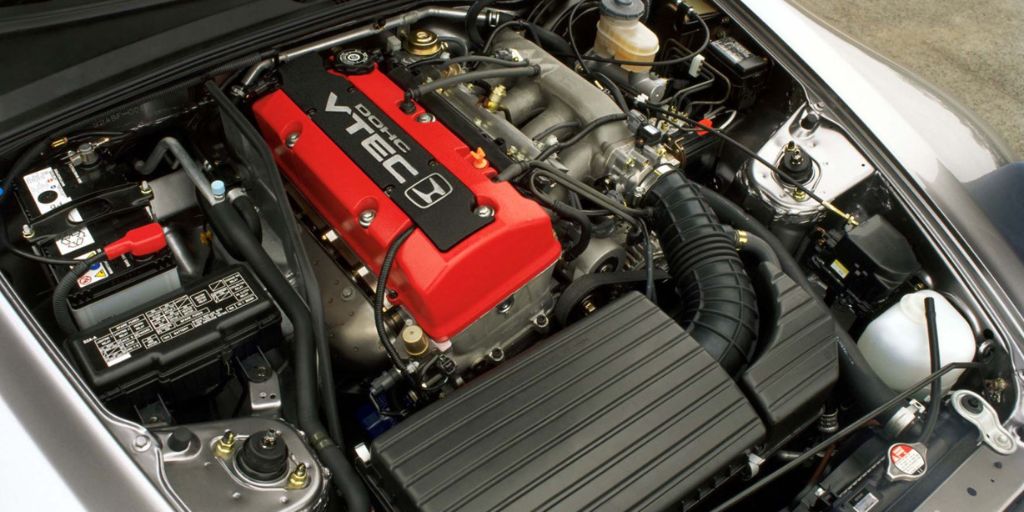For decades, engines have been the backbone of modern agriculture, revolutionizing the way farmers work and transforming farming from a labor-intensive practice into a more efficient and productive enterprise.
From plowing fields and harvesting crops to powering irrigation systems and transporting goods, reliable engines have enabled farmers to meet the growing demands of food production with greater speed and precision.
These machines have become so essential that many farmers would find it impossible to sustain their livelihoods without them.
The relationship between farmers and their engines is built on trust and performance. In rural communities worldwide, the success of a harvest—and, by extension, a farmer’s entire income—often depends on the reliability of their machinery.
Engines that can withstand long hours of operation under extreme weather conditions, on rough terrains, and with minimal maintenance are highly valued.
Over time, certain engine brands and models have earned legendary status in agricultural circles, praised for their durability, efficiency, and ability to handle a wide variety of farming tasks.
Farmers’ loyalty to these trusted engines is not merely about brand recognition; it is a reflection of real-world performance and reliability.
Stories abound of engines that have run smoothly for decades, passed down from one generation to the next, and still delivering dependable service.
This deep-seated trust has created a unique bond between farmers and the engines they rely on—a bond rooted in hard work, resilience, and shared success.
Why Farmers Swear by These Engines for Decades
In this article, we will explore the reasons why farmers around the world swear by certain engines, examine the types and features that make these engines indispensable in agriculture, and highlight some of the most trusted brands and models that have stood the test of time on farms across the globe.
Also Read: The Engines Mechanics Would Bet Their Own Money On
The Vital Role of Engines in Modern Agriculture
Engines have transformed farming from a labor-intensive activity to a mechanized and highly efficient operation. In the past, farming relied heavily on manual labor and animal power, which was time-consuming and physically demanding.
The introduction of engines into agriculture marked a turning point, enabling farmers to cultivate larger areas of land, improve productivity, and reduce the overall time and effort required for various tasks.
The first major impact of engines in agriculture can be seen in land preparation. Tractors powered by robust diesel or gasoline engines have replaced the traditional use of oxen or horses.
These tractors can plow, till, and harrow fields much faster and more efficiently, allowing farmers to prepare the soil for planting in a fraction of the time it once took.
For example, a single tractor equipped with a powerful engine can cultivate acres of land in a single day—something that would have taken days or even weeks with manual labor.
Another crucial application of engines in agriculture is in irrigation systems. Access to water is critical for successful farming, and engines have revolutionized how water is delivered to crops.
Diesel and electric engines power pumps that can draw water from wells, rivers, and reservoirs to irrigate vast fields.
In areas prone to drought or with inconsistent rainfall, engine-powered irrigation systems are a lifeline, ensuring that crops receive the necessary water supply to thrive.
In addition, engines power harvesting machinery, which has greatly enhanced the efficiency of crop collection. Combine harvesters, powered by reliable engines, can cut, thresh, and clean grain crops in one seamless process.

This mechanization not only saves time but also reduces crop losses and improves the overall quality of the harvested produce.
Finally, engines are essential for post-harvest activities and transportation. From powering threshers and mills to driving trucks and trailers that transport produce to market, engines ensure that farm operations run smoothly from planting to selling.
This comprehensive use of engines throughout the agricultural process explains why farmers place immense trust in them.
Key Qualities That Make Engines Indispensable on Farms
Over the years, certain engines have earned the unwavering trust of farmers due to their outstanding performance and reliability. Here are some of the key qualities that make these engines indispensable:
Durability and Longevity:
Farming is tough on equipment. Fields are often dusty, muddy, or rocky, and engines are subjected to long hours of continuous operation in extreme weather conditions.
Engines that can withstand this harsh environment for many years without significant breakdowns earn farmers’ loyalty.
Stories of tractors and pumps still running smoothly after 30 or 40 years are common in farming communities, highlighting the unmatched durability of certain engine brands.
Fuel Efficiency:
For farmers, every penny counts. Engines that offer high fuel efficiency reduce operational costs, allowing farmers to maximize profits. Diesel engines, in particular, are prized for their superior fuel economy compared to gasoline engines. With fuel prices constantly fluctuating, having an engine that can do more work with less fuel is a significant advantage.
Ease of Maintenance:
Farming often takes place in remote areas far from service centers. Engines that are simple to maintain and repair on-site are highly valued.
Farmers appreciate engines with accessible parts, clear manuals, and straightforward designs that allow them to perform routine maintenance and minor repairs themselves. This self-sufficiency ensures minimal downtime during crucial farming periods.
Versatility:
Farms require engines that can perform multiple tasks. Versatile engines that can be used to power tractors, irrigation pumps, threshers, and other machinery save farmers the expense of buying different engines for each piece of equipment. This adaptability makes certain engines particularly attractive for small and medium-sized farms.
Power and Performance:
Engine power is a key factor in getting work done quickly and effectively. Whether it’s tilling heavy clay soil or transporting a full load of produce, engines need to provide sufficient horsepower and torque to handle demanding tasks.
Farmers favor engines that deliver consistent performance under heavy loads without overheating or stalling.
Proven Track Record:
Trust is built over time through consistent performance. Engines that have a long history of reliability and positive reviews within the farming community become the go-to choice for new buyers.
Farmers often rely on word-of-mouth recommendations and past experiences when choosing engines, and brands with a proven track record tend to dominate the market.
Trusted Engine Brands and Models in Agriculture
Certain engine brands have become synonymous with reliability and performance in agriculture. These brands have earned farmers’ trust through decades of service in fields worldwide.
John Deere Engines:
John Deere is perhaps the most iconic name in agriculture. Its diesel engines, known for their power and durability, are the heart of many tractors and harvesters.
Models like the John Deere 4045 and 6068 engines are celebrated for their fuel efficiency and long service life. Farmers appreciate John Deere’s commitment to quality and the availability of parts and service globally.
Kubota Engines:
Kubota is renowned for its compact and versatile diesel engines, which are commonly used in tractors, rice transplanters, and irrigation pumps.
The Kubota D902 and V1505 engines are particularly popular for their reliability and low emissions. Kubota’s reputation for producing easy-to-maintain engines has made it a favorite among small-scale farmers.
Perkins Engines:
Perkins has built a solid reputation for producing powerful and reliable engines for agricultural machinery.

Its Perkins 1104 and 403 series engines are widely used in tractors, generators, and combines. Farmers value Perkins engines for their robust performance and ability to operate in tough conditions without frequent repairs.
Mahindra Engines:
Mahindra, a leading name in agricultural equipment, produces diesel engines that power a vast range of tractors and farm machinery. Models like the Mahindra MDI 3000 and E475 engines are highly regarded for their ruggedness and cost-effectiveness.
Mahindra engines are particularly popular in India and other developing countries, where they have proven their mettle in diverse farming environments.
Honda Engines:
While Honda is better known for its small gasoline engines, these engines play a crucial role in powering water pumps, small tractors, and portable generators on farms.
Honda’s GX series engines are praised for their reliability, fuel efficiency, and ease of use. They are often the first choice for farmers who need lightweight, portable power solutions.
Farmers’ Testimonials and Real-World Success Stories
Real-world experiences and testimonials from farmers offer compelling evidence of why certain engines are so highly regarded.
For instance, a farmer in Iowa shared that his John Deere 4020 tractor, equipped with a reliable diesel engine, had been in continuous use for over 40 years, with only routine maintenance needed.
In India, rice farmers frequently praise the Kubota power tiller engines, noting their ability to operate efficiently in muddy fields where other machines struggle.
In Kenya, smallholder farmers have come to rely on Honda water pumps to irrigate their crops during dry spells. These pumps, powered by Honda’s small gasoline engines, have enabled farmers to increase their yields and improve their livelihoods.
Similarly, sugarcane farmers in Brazil swear by their Perkins-powered harvesters, which can run continuously for days during peak harvest season without breakdowns.
These testimonials underscore a universal truth: when it comes to engines, reliability and performance are non-negotiable.
Farmers know that their livelihood depends on machinery that won’t let them down, and their loyalty to trusted engine brands is a testament to the critical role these machines play in their daily lives.
Innovations Shaping the Future of Agricultural Engines
The future of agricultural engines is being shaped by innovations aimed at improving efficiency, reducing environmental impact, and enhancing ease of use. Some of the most exciting developments include:
-
Hybrid and Electric Engines: As sustainability becomes a priority, engine manufacturers are exploring hybrid and fully electric engines for farm equipment. These engines promise quieter operation, lower emissions, and reduced fuel costs.
-
Smart Engines: With the rise of precision agriculture, engines are being integrated with smart technology that allows farmers to monitor performance, fuel consumption, and maintenance needs in real-time through mobile apps and telematics systems.
-
Biofuel-Compatible Engines: To reduce reliance on fossil fuels, some manufacturers are developing engines that can run on biofuels such as ethanol and biodiesel, offering an eco-friendly alternative that supports energy independence.
These innovations are set to further strengthen the bond between farmers and their engines, ensuring that future generations of farmers can continue to rely on trusted machinery for their agricultural needs.
The enduring trust farmers place in certain engines is not a matter of chance but the result of years—often decades—of consistent performance, durability, and reliability.
Engines are more than just mechanical components on a farm; they are the lifeblood of modern agriculture, powering the machines that sow, nurture, and harvest the crops that feed the world.
From the moment a seed is planted to the time produce reaches the market, engines are there at every critical juncture, ensuring that operations run smoothly and efficiently.
Farmers’ loyalty to brands like John Deere, Kubota, Perkins, Mahindra, and Honda is built on real-world experience.
These engines have proven their worth in challenging conditions, from the muddy rice paddies of Southeast Asia to the vast wheat fields of North America and the sugarcane plantations of Brazil.
Their ability to withstand long hours of operation, cope with rough terrains, and deliver powerful, consistent performance even in harsh weather has made them indispensable partners in farming success stories across the globe.

Looking ahead, as agriculture evolves to meet the challenges of climate change, population growth, and environmental sustainability, so too will the engines that power it.
Innovations in hybrid technology, smart monitoring systems, and eco-friendly fuels promise to make engines even more efficient, sustainable, and reliable.
Yet, one thing will remain unchanged: farmers will continue to value engines that they can depend on—machines that prove their mettle year after year, generation after generation.
In the end, farmers swear by these engines because they have earned that trust the hard way: through unwavering performance in the face of tough demands. They are more than just tools—they are trusted allies in the timeless and vital work of feeding the world.
Also Read: 5 Legendary V6 Engines That Refuse To Die and 5 That Self-Destruct

